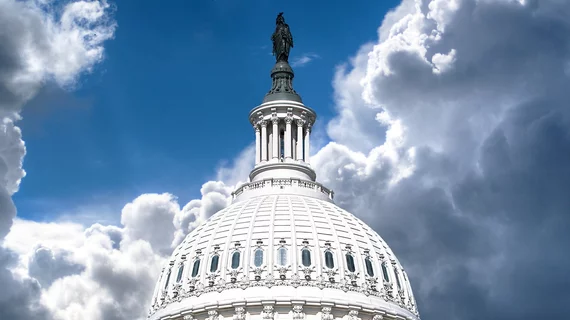Senate finalizes radiologist-supported bill to address burnout following physician’s suicide
The U.S. Senate passed a radiologist-supported bill to address provider burnout on Thursday, Feb. 17, in response to a New York emergency physician’s suicide in 2020.
House lawmakers already approved the Dr. Lorna Breen Health Care Provider Protection Act in December, with the bill now headed to President Joe Biden for his signature.
Measures in the legislation include grants for helping train physicians address mental health issues, along with pinpointing best practices to prevent provider suicide. Numerous healthcare groups have previously voiced support for the act, including the American College of Radiology and the American Medical Association.
“We mourn Dr. Breen and take solace that her death prompted a desperately needed effort to focus on the mental health of physicians,” AMA President Gerald Harmon, MD, said in a statement. “These issues have always been present in medicine, and the COVID-19 pandemic has pushed them to the forefront. The AMA is grateful the Breen family advocated for this legislation, and that Congress listened.”
The bill will also create a national initiative urging healthcare professionals to seek support for mental health and substance abuse and launch an exploration of COVID-19’s impact on such concerns. Some provisions are funded by the American Rescue Plan Act, signed into law in March 2021.
Sen. Tim Kaine, D-Va., introduced the legislation in July 2020, joined by other supporters including Sens. Todd Young, R-Ind., Jack Reed, D-R.I., and Bill Cassidy, MD, R-La. A version of the legislation previously passed in both chambers but needed to return for another round of votes “due to a small technical difference” between the House and Senate versions.
“Doctors, nurses and healthcare workers shoulder the responsibility of saving lives and have worked overtime during the pandemic,” Cassidy said in a statement. “Passing this bill through Congress provides an important lifeline for medical professionals so they too can get the care they need.”

